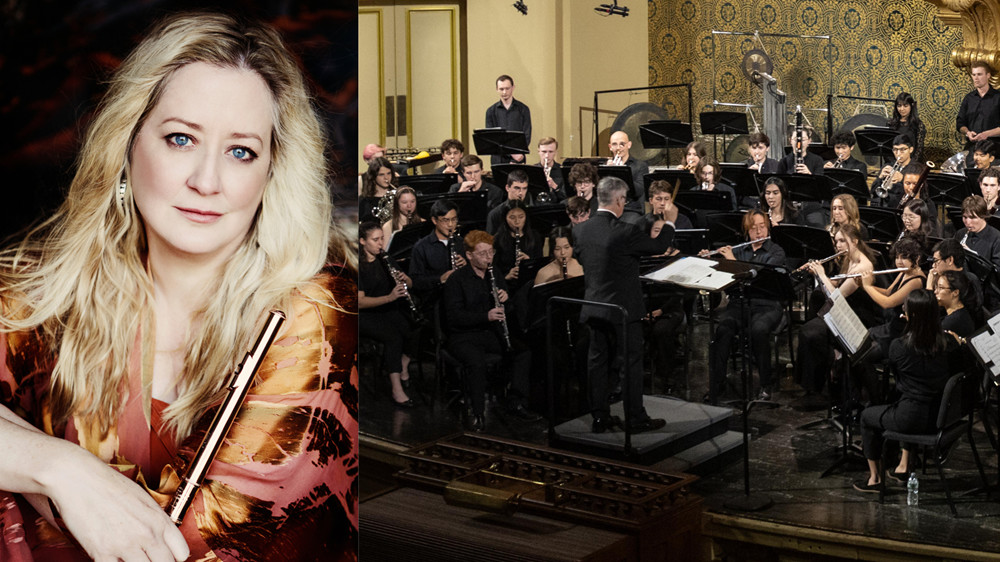Yale Concert Band Opener to feature "Precious Metal" for solo flute and winds, Tara Helen O'Connor, guest artist

The Yale Concert Band -- Yale’s premier wind ensemble -- Thomas C. Duffy, Music Director, will perform its opening concert on Friday, October 3, 2025, at 7:30 p.m. in Woolsey Hall (500 College Street, New Haven). Admission is free and no tickets or reservations are required.
Precious Metal: A Concerto for Flute and Winds. D.J. Sparr composed this concerto to showcase the versatility as well as the delicate strength of the flute. Its three movements are based on the three metals of which the flute is made – silver, platinum, and gold – but as soloist Tara Helen O’Connor, Yale School of Music Professor of Flute, will show, the flute can be much more than the sum of its parts.
The Frozen Cathedral refers to Alaska’s majestic Denali. John Mackey's soaring piece explores mankind’s draw to monumental, remote, ethereal and awesome parts of the world as a kind of pilgrimage and search for the sublime, for transcendence. “A great mountain is like a church.”
The Fairest of the Fair. Over many years playing regularly at the annual Boston Food Fair, composer John Philip Sousa repeatedly noticed, but never met, an especially attractive young woman at one of the displays. Needing a new march for his band’s usual appearance there, he used this stranger as inspiration, composing as an ode to the fairest lady at the Boston Food Fair. The work is generally regarded as one of his most melodic and best-written marches.
Fairest of the Renaissance Faire (Erika Svanoe) takes melodic themes and motives from Sousa’s march The Fairest of the Fair and transforms them into a Renaissance context. The piece is in four short movements: The March of King Jhon, Three Faire Maydens, A Bird’s Swete Kiss, and William’s Wilde.
Tunbridge Fair. Walter Piston used the diverse and bustling county fair in Tunbridge, Vermont, as his inspiration for this piece, which stands as a marvel of concise, painstaking craft combined with an energetic and lyrical spirit of expression. Its riotous atmosphere is captured by the bright, bouncy rhythms of the jazzy first voice of the piece, pitted against the smoother, syncopated rhythm of the second voice.
Tuttarana. Reena Esmail explains that the title of this piece is a conglomeration of the Italian word “tutti” meaning “all” or “everyone” – and the term “tarana” – which designates a specific Hindustani musical form whose closest Western counterpart is the “scat’” in jazz. The “tarana” is a place where musicians can put their greatest virtuosity on display, leaving an audience in awe.
And With This New Day… Composer William Owens was inspired by this simple yet powerful quote by Eleanor Roosevelt: “With the new day comes new strength and new thoughts,” encouraging us to be open to positive change and recognize that no matter how difficult previous times were, the new day always brings a fresh start.